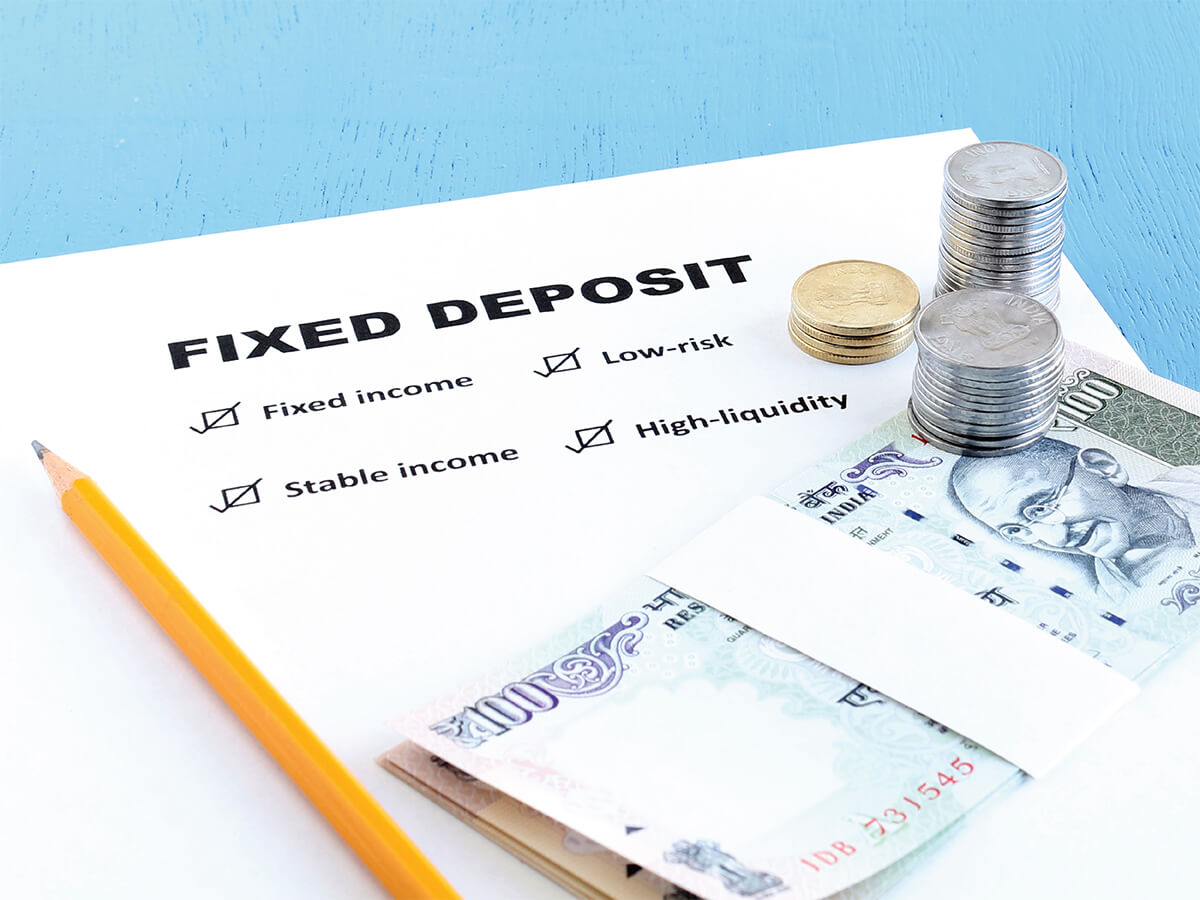The COVID-19 pandemic has brought unprecedented challenges to individuals and households worldwide, including India. Many people have faced financial setbacks due to job losses, salary cuts, and market downturns. In times like these, it becomes crucial to protect our hard-earned money while ensuring stability and security for the future. This is where FD investments can play a vital role, as fixed deposit returns are higher.
In this article, we will explore why investing in Fixed Deposits (FDs) is an excellent choice during economic crises. We will discuss the benefits of FD investment, such as easy liquidity, high fixed deposit returns, and protection from market volatility. By understanding how FDs work and their long-term potential, you can make informed decisions to sail through uncertain times effectively.
The benefits of FD investments
Fixed Deposits offer several advantages that make them an attractive investment option during economic crises. Let's delve into these benefits in detail:
1. Easy liquidity
In times of emergency or unforeseen expenses, having access to funds is crucial. FD investments provide this flexibility by allowing you to withdraw from your account anytime. Look for banks that offer a Fixed Deposit Account that allows you to close the account before maturity and credit the funds directly into your Savings Account.
2. High interest rates
When choosing an investment product, earning high interest is essential. Fixed Deposit Returns are higher and they remain fixed throughout the tenure of the deposit. In some banks, you can earn returns at an attractive annual rate for a tenure between 7 and 14 days. For long term FD interest rate of 5 years or more, the interest rate can be as high as 5.75% p.a. Additionally, senior citizens enjoy an additional interest rate with certain banks.
3. No impact of market volatility
One of the significant advantages of FD is that they are not affected by market volatility. While other investment options like stocks and mutual funds fluctuate with market conditions, FDs generate assured returns regardless of market performance. This stability makes FDs a reliable choice for individuals looking to protect their investments during uncertain times.
Strategies for investing in FDs during economic crises
During economic crises, it's crucial to have a strategy in place to maximise your returns and minimise risks when investing in FDs. Here are some strategies you can follow:
1. Monitor market fluctuations and trends
Keeping an eye on market fluctuations and trends is essential to optimise your FD investment during economic crises. Factors such as inflation rates, central bank policies, and economic indicators can impact interest rates on FDs. By staying informed about such trends, you can make informed decisions while choosing the best time to invest in FDs.
2. Maintain a diversified portfolio
Diversifying your portfolio is a tried-and-tested strategy to reduce risks during market fluctuations. By investing in different types of FDs across various financial institutions, you can ensure a stable income stream even if one investment is impacted by market swings. Consider selecting FD products with varying risk levels, tenures, and interest rates to protect your investments from market-related risks.
3. Consult a qualified financial expert
Investing in FDs requires careful consideration based on your risk tolerance and financial goals. You must look at long term deposits to earn profits. If you're unsure about making the right investment decisions during economic crises, it's advisable to consult a qualified financial expert. They can guide you in selecting the best FD schemes suited to your needs and provide insights on interest rate changes and ideal investment tenures.
4. Take an active approach to risk management
Managing risks is crucial when investing in FDs during economic crises. While FDs are generally considered low-risk investments, potential defaults by financial institutions offering the scheme can pose a risk. Stay vigilant by monitoring market circumstances, understanding volatile investments, and modifying your investment plan accordingly. This active approach will help you maximise returns while minimising risks.
Additional read: Things To Know On FD Premature Closure Penalty
5. Beware of premature withdrawal
If you want a decent profit coming from a long-term FD interest rate, you must treat this as a long-term strategy and premature withdrawal should be approached with caution, especially during economic crises. While market volatility may present exciting investment opportunities, breaking your FD prematurely can result in losing interest and incurring penalties. Remember that FDs are designed for long term deposits, providing stability and assured returns over time.
Conclusion
In times of economic uncertainty, FD investments can provide stability and security for your hard-earned money. With features like easy liquidity, high-interest rates, and protection from market volatility, FDs are a reliable choice for individuals looking to weather economic crises effectively.
When considering where to invest your money during an economic crisis, Mahindra Finance offers a range of products tailored to meet the diverse needs of rural and semi-urban Indians. Explore their offerings to find the best options for securing your financial future.
FAQs:
Q: What is the difference between short-term and long term FDs?
A: Short-term FDs typically have lower interest rates compared to long-term FDs but offer more liquidity. Long-term FDs provide higher interest rates but have a longer lock-in period before withdrawal is allowed.
Q: How can I calculate my long term FD interest rate earned?
A: To calculate the interest earned on a long term FD, use the formula: Interest = Principal Amount × Rate of Interest × Time Period. For example, if you have invested ₹1,00,000 in a long-term FD with an interest rate of 6% for 5 years, the interest earned would be ₹30,000.
Q: Can I withdraw money from my FD before maturity?
A: Yes, you can withdraw money from your FD before maturity. However, premature withdrawal may result in penalties and loss of interest. It's advisable to check with your financial institution for their specific policies on premature withdrawal.






















































